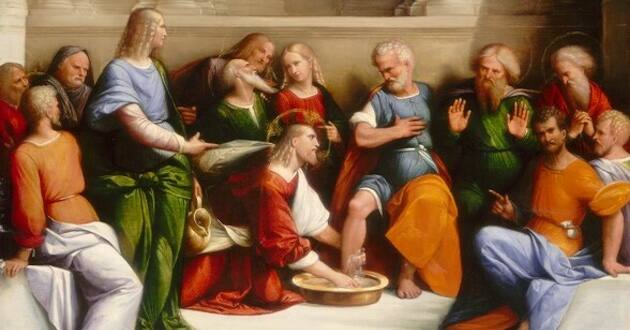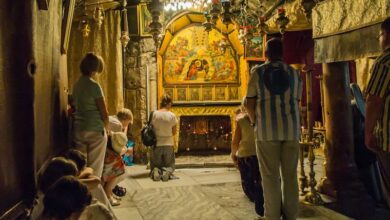Maundy Thursday commemorates Last Supper, washing of disciples’ feet

In a week in which Christians celebrate Palm Sunday, Good Friday and Easter, it can be easy to overlook Maundy Thursday.
“Maundy Thursday plays a major significance during the Holy Week,” according to the website Christian.net. “It is the night where Jesus celebrated the Passover with the disciples. Other than that, Jesus gave a mandate to them that also applies to us at present. He had his last supper with them.”
Maundy Thursday, also known as Holy Thursday, Covenant Thursday and Great and Holy Thursday, is the Thursday before Good Friday. It is the start of the Paschal Triduum, a period of three days starting on the evening of Maundy Thursday until Easter Sunday. This day commemorates the washing of Jesus’ disciple’s feet and the last supper of Jesus Christ with his disciples.
The observance is often wrongly associated only with the Catholic Church. Around the world, it is commemorated by hundreds of millions of protestants as well, including Lutherans, Methodists and some Southern Baptists in the United States. Maundy is an Anglo-French word that came from the Latin word mandatum (or mandatum novum). It means commandment or a new mandate. It refers to the new commandment Jesus gave the disciples, which is to love one another as he loved them (John 13:34).
“I don’t think many of us know how humbling that must have been: to have the Lord of glory on his hands and knees washing our feet; to know that he was concerned about the dust between our toes, about our ceremonial cleanness and about our need to serve one another,” writes Benjamin Cole for Baptist News Global. “As Jesus prepared them for this last meal, he washed them as if they were priests who were ordained to prepare a sacrifice. How little did they know that’s exactly what they were about to do.”
Although services vary, many Christian churches commemorate Maundy Thursday. One of the ancient Christian practices to celebrate Maundy Thursday is communion or the Lord’s Supper. Some churches celebrate sacraments as part of an evening meal in a less formal setting. The church sanctuary is reminiscent of the setting of the original Last Supper. Other churches also observe the washing of feet, in which they reenact Jesus’ humble act of service toward his disciples.
According to the Old Testament, washing feet was the first act upon entering a tent or a house after a journey. For ordinary people, the host provides the water and the guests wash their own fee. For the rich, the house servant or the slave carried out the job of washing the feet of the guest. It is considered as the lowest of all services. Teachers were seen as persons of higher status than their disciples, so they would never wash the feet of their disciples.
By washing the feet of his disciples on Maudy Thursday, Jesus was humbling himself and making his disciples equivalent or of higher in status than himself as their rabbi. Before Jesus’ crucifixion and death, he was a model servant and showed this servant attitude through his actions toward his disciples.
“Why should we celebrate it?” the website asks. “Because it reminds us of Jesus’ new mandate not only for his disciples but also for us. He calls us to love with humility by serving one another and to remember his sacrifice. By showing us how to love and loving us unconditionally, Jesus set a new and higher standard for love. For his disciples, Jesus sacrificed himself to meet their deepest needs. He gave his disciples the forgiveness of sins, leading them to a new spiritual life.”
–Alan Goforth | Metro Voice








